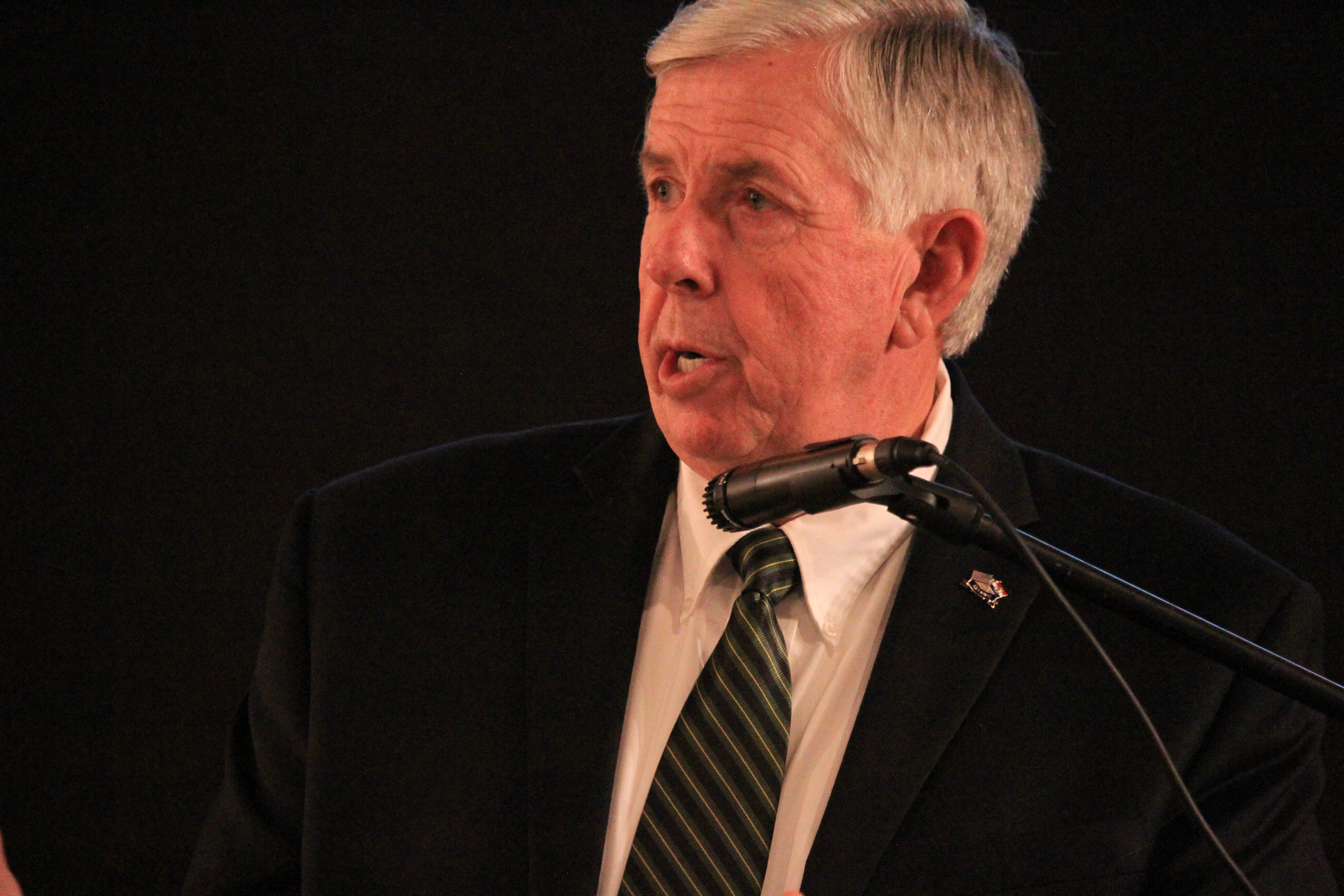JEFFERSON CITY, Mo. — One of the first among many challenges for Governor Mike Parson, when he took office in June, was to change the perception of not only state government, but that of the Republican Party. With the general election just months away, polls showed 50% of Missourians felt the state was on the wrong track, compared to only 33% felt the state was on the right track.
Parson took office on June 1, but it would be just four days into his administration when many felt what would be a harbinger of November. Before resigning from office, his predecessor, Eric Greitens, set a special state senate election in a swing district in Clay County. Republicans had previously held the district under Senators Luann Ridgeway and Ryan Silvey.
However, the district swung hard to the left with now-Senator Lauren Arthur winning the special election by 20 points. That special election combined with House Republicans losing a seat in the former battleground of Jefferson County in a separate special election led many Republicans to forecast doom in November.
No one in either party was predicting what would happen in November.
It was against that backdrop that now-Governor Parson hit the road, crisscrossing the state meeting with folks, and put a focus on policy and inclusion. There was a laser focus on helping heal the state and the Republican Party begin to heal from the controversial months before taking office.
The first half of the year, the main topic of discussion was not policy nor the issues facing Missourians and the state. Rather, conversations centered around the turmoil in the then-Governor’s Office.
The first steps were opening up the Governor’s Office to elected officials of all parties, and traveling to places such as the Kansas City City Hall, where most Governors did not spend the time to rebuild credibility and trust within the office. At the same time, he was personally reaching out to Republican leaders, many of whom had taken shots at him in the weeks prior.
All that toil paid off for the Republican Party on election day in November. “Parson was the right person, at right time to lead the state,” said James Harris, a political consultant.
What changed in those short few months to change Missouri Republicans fortunes? The person in charge of leading the state. Once in office, Missouri’s new governor made an active change in the tone and success of the Missouri Republican Party’s campaigns.
“[Parson] was a team player, he really focused on healing the state,” said David Barklage, a political consultant. “He was key in creating an atmosphere that was much more favorable.”
Barklage attributed the successes Republicans had on Election Day to Parson’s leadership. Parson went out and talked to Missourians, he stumped for Josh Hawley in the U.S. Senate race, he campaigned for candidates for the General Assembly, he facilitated bipartisan support for increased road funding and raised money for the Missouri Republican Party.
On one day in October, Parson spoke at five different rallies in four different cities and then he went on to host a fundraiser for now-Sen.-elect Tony Luetkemeyer. The next day he hit the road, again campaigning and then turning around for another event in support of Sen. Mike Cierpiot’s re-election. Both Luetkemeyer and Cierpiot won hard-fought victories that were imperative to maintaining the Republican supermajority in the Senate.
“He allowed people to focus back on policy, not personality,” said Cierpiot. “He was very helpful in that regard. He’s more interested in getting things done than getting attention.”
At a time when in Iowa Republicans lost seats in the state legislature, and Republicans lost gubernatorial elections to the east in Illinois and to the west in Kansas, Missouri Republicans had a banner night.
“Governor Parson was instrumental in the GOP’s successful election cycle in 2018,” said House Speaker Elijah Haahr.
Despite voters soundly defeating right-to-work, not a single senator that supported the legislation lost their seat. The state House did not see a net loss — though they lost three seats, they also pick up three seats, flipping a seat they had previously lost under Gov. Eric Greitens. Hawley ousted incumbent-U.S. Sen. Claire McCaskill, resulting in an Attorney General and upcoming state treasurer appointment.
“He was instrumental in bringing the political environment back where it needs to be,” said Harris. “Mike Parson is a humble person, he is a person happy to be in Missouri, and he is willing to sit down with anyone, including those he might not agree with ideologically. Governor Parson has worked hard, he is accessible — he went around the state and sat down with people, listened to people, talked to people.”
As of the end of October, 45 percent of Missourians believed that the state was heading in the right direction with only 11 percent of people having an unfavorable opinion of Parson.
In the spring, the undercurrent of division within Missouri did not bode well for the upcoming general election or the legislative session that would follow. However, after election day, Missouri Republicans had their swagger back and are preparing an aggressive legislative agenda for the upcoming session.
“His steady leadership will be an incredible help as we prepare for Missouri’s 100th General Assembly,” said Haahr.
Rachael Herndon was the editor at The Missouri Times and also produced This Week in Missouri Politics, published Missouri Times Magazine, and co-hosted the #MoLeg podcast. She joined The Missouri Times in 2014, returning to political reporting after working as a campaign and legislative staffer.
Rachael studied at the University of Missouri – Columbia. She lives in Jefferson City with her husband, Brandon, and their two children.















